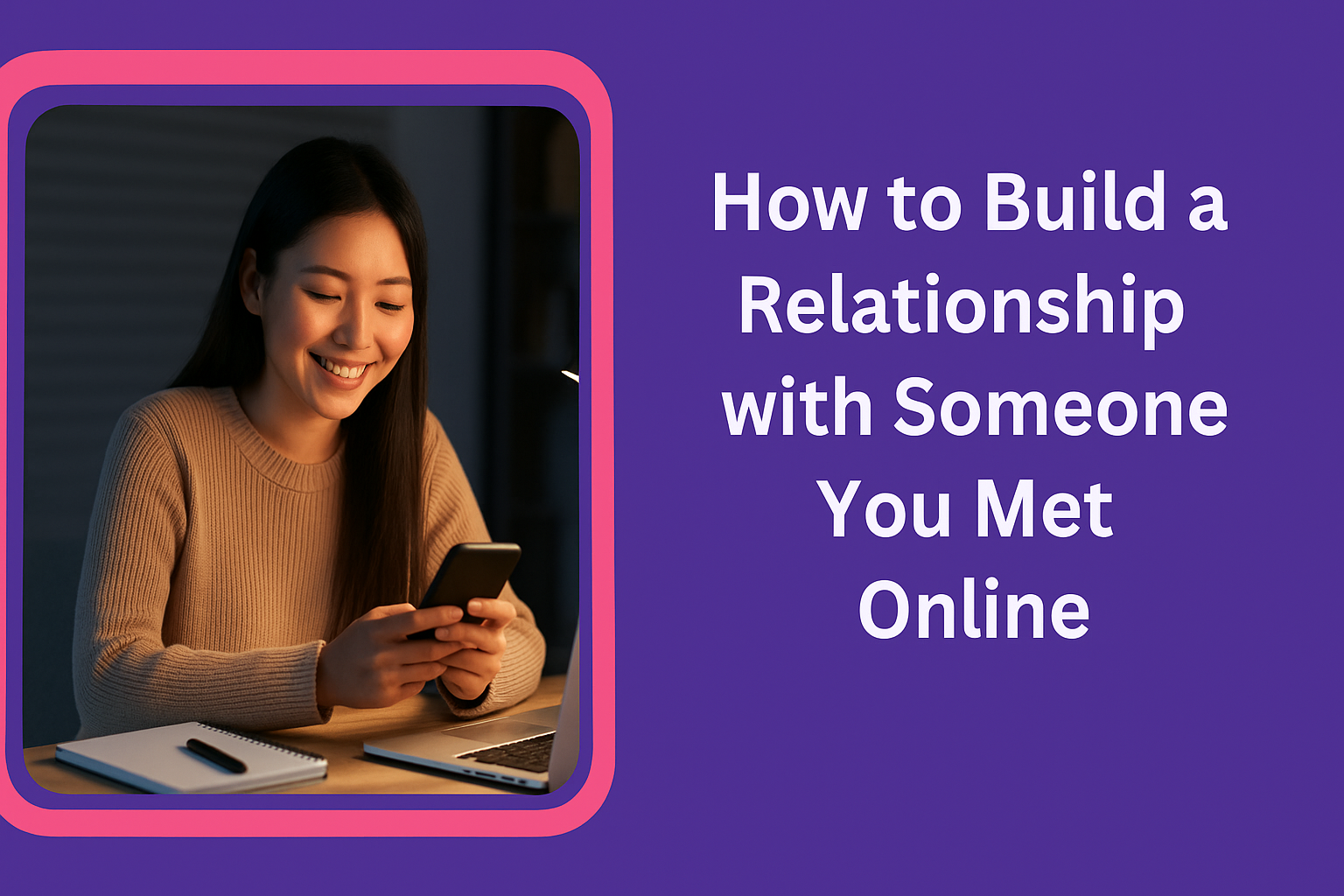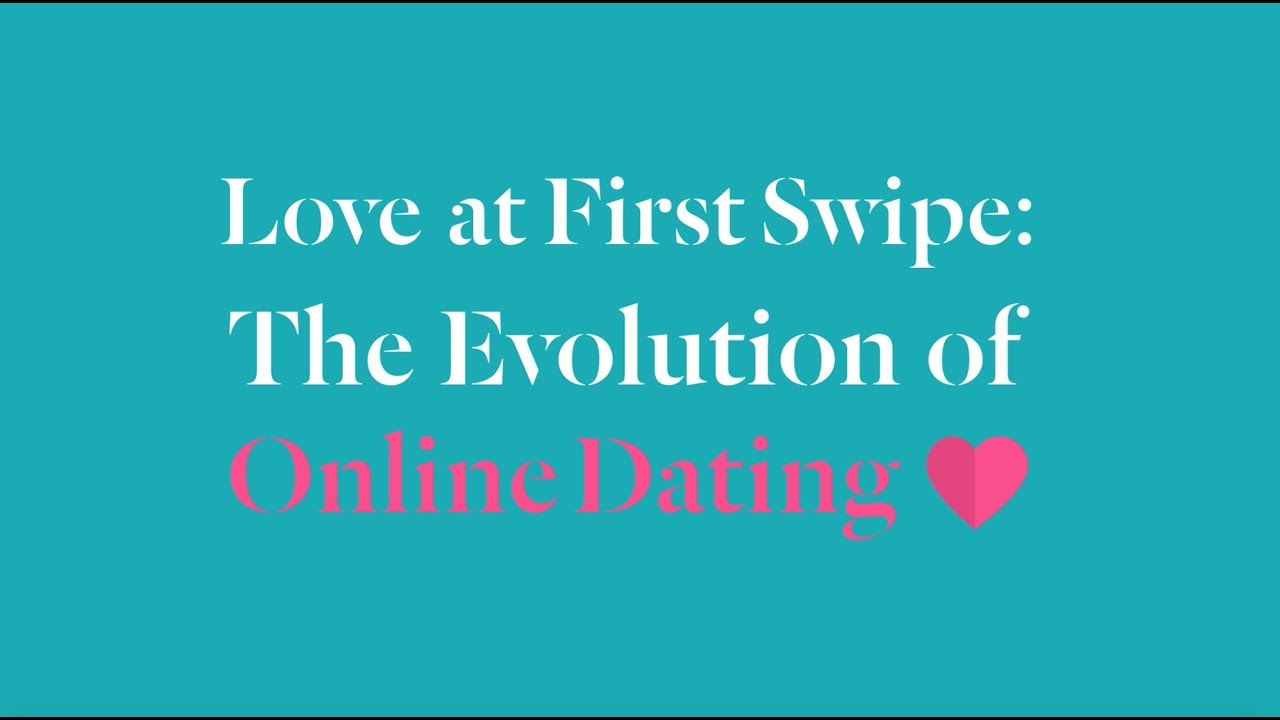In the age of smartphones and social media, meeting someone online is no longer a rarity — it’s the norm. From dating apps and social platforms to gaming communities and forums, the digital world has become a breeding ground for meaningful relationships. But while technology makes it easy to meet people from all walks of life, building a real connection—one that’s sustainable and fulfilling—requires intention, effort, and emotional intelligence.
This comprehensive guide will walk you through the steps, challenges, and tips on how to build a relationship with someone you met online, ensuring it has the potential to flourish into something deep, meaningful, and possibly lifelong.
1. Start with Honest Communication
Transparency from the Start
The foundation of any strong relationship—online or offline—is honesty. Be clear about who you are, what you want, and what you expect from the other person. Misleading photos, half-truths about your job, or fuzzy details about your intentions might seem harmless early on, but they erode trust over time.
Set Expectations
Be upfront about your goals. Are you looking for a serious relationship, casual dating, or simply friendship? It’s okay to have different goals—as long as both parties are aware and agree.
2. Take Time to Get to Know Each Other
Don’t Rush It
Online connections can escalate quickly. You may find yourself talking for hours, texting constantly, and feeling deeply connected after just a few days. While emotional intensity can be intoxicating, it’s crucial to take time to understand who the person really is. A relationship built too quickly may not have a strong foundation.
Ask the Right Questions
Go beyond surface-level topics. Ask about:
- Family background
- Career goals
- Hobbies and interests
- Values and beliefs
- Past relationships (when appropriate)
- Emotional triggers and communication styles
These questions help you evaluate compatibility and emotional maturity.
3. Use Multiple Channels of Communication
Video Calls are a Game-Changer
Texting is convenient but lacks nuance. Voice and video calls help you better understand your partner’s tone, expressions, and body language. This humanizes the interaction and deepens your emotional connection.
Try Co-Activities Online
Watch a movie together via screen sharing, play online games, or do virtual tours. These shared experiences simulate spending time together in real life and help build a bond beyond conversation.
4. Build Trust Gradually
Trust is Earned, Not Assumed
Because you didn’t meet in a traditional setting, trust can be harder to establish. It’s built over time through consistent, respectful behavior. Avoid oversharing too soon, but don’t be overly guarded either. Share a little, watch how they respond, and go from there.
Pay Attention to Red Flags
Some signs that someone might not be trustworthy:
- Avoiding video calls or meeting in person after a long time
- Inconsistencies in stories
- Always needing money or help
- Overly secretive about their daily life
Listen to your intuition and prioritize your emotional and physical safety.
5. Establish Emotional Intimacy
Vulnerability is Key
Emotional intimacy grows when both people feel safe to share their fears, insecurities, and dreams. It’s okay to admit when you’re feeling anxious or unsure. When vulnerability is met with empathy, trust deepens.
Active Listening
When your partner shares something, listen deeply without jumping in to fix it or make it about you. Ask follow-up questions, show genuine curiosity, and validate their feelings. This shows that you care, and that you’re emotionally available.
6. Plan to Meet in Person (When Safe)
Bridge the Online-Offline Gap
While many online relationships can grow deeply without physical presence, it’s vital to eventually meet in person if you’re pursuing a romantic relationship. Physical chemistry, lifestyle compatibility, and daily habits can only truly be assessed in real life.
Safety First
When meeting for the first time:
- Choose a public place
- Inform a friend or family member of your location
- Avoid overnight stays until you’re comfortable
- Trust your gut
Even if you feel like you “know” the person, online personas can be curated.
7. Discuss Long-Term Possibilities
Logistics Matter
If you live in different cities or countries, talk openly about the possibility of relocation, long-distance logistics, and financial implications. While love is powerful, it’s not immune to the real-world challenges of visas, time zones, and travel costs.
Set Relationship Milestones
This could include:
- Officially becoming a couple
- Meeting each other’s friends and family (even virtually)
- Making plans for visits
- Moving in together, eventually
Clear goals and timelines can help both parties stay aligned.
8. Deal with Conflict Constructively
Every Relationship Has Disagreements
Disagreement doesn’t mean incompatibility. It’s how you handle conflict that determines the relationship’s health.
Tips:
- Avoid passive-aggressiveness or ghosting
- Don’t argue over text—use calls for nuanced conversations
- Take breaks if emotions run high
- Use “I” statements to express feelings (e.g., “I feel hurt when…”)
Healthy conflict resolution builds resilience.
9. Include Each Other in Your Daily Life
Be Present, Even When Apart
Sharing daily moments, no matter how mundane, can help create a sense of togetherness. Send voice notes in the morning, share pictures of your lunch, or update each other about your workday.
Celebrate Milestones Together
Even if you’re not physically together, you can:
- Send gifts or letters
- Have virtual birthday dates
- Share countdowns to your next visit
These small acts go a long way in maintaining emotional closeness.
10. Know When It’s Not Working
Honesty Over Obligation
Not all online relationships are meant to last. If you start feeling anxious, drained, or uncertain more often than you feel happy and secure, it may be time to re-evaluate.
Ask yourself:
- Do I trust this person fully?
- Am I compromising my values or self-worth?
- Do our futures align?
It’s okay to end things if your needs aren’t being met.
End with Kindness
If you need to walk away, do so with honesty and compassion. Ghosting or dragging things out hurts both parties.
11. Practice Patience and Flexibility
Relationships Take Time to Develop
Just because you’re connecting online doesn’t mean the process should be rushed. Allow space for natural growth. Some days will feel deeply connected, others may feel distant. This ebb and flow is normal.
Be Open to Change
As you both grow, your dynamics might shift. Embrace change, be willing to adapt, and have ongoing conversations about how the relationship is evolving.
12. Seek Support and Resources
Talk to Friends and Family
Don’t isolate your online relationship. Talk to people you trust, get their perspective, and include them in your journey.
Consider Counseling
If things get serious and challenges arise, couples therapy—even virtually—can provide guidance. Many therapists now offer online sessions.
13. Real-Life Success Stories Can Inspire You
Many successful couples today started their relationship online. From cross-country marriages to long-distance friendships that became business partnerships, the digital world has facilitated powerful bonds.
What makes them work? A consistent theme emerges:
- Honest communication
- Mutual effort
- Patience
- A shared vision for the future
Meeting someone online is just the beginning. Building a genuine, lasting relationship takes effort, vulnerability, and commitment from both sides. While the internet may offer convenience, depth still requires time, emotional presence, and intentional actions.
Remember, it’s not about how you met, but how you grow together.
Whether you’re chatting over morning coffee via video or planning your first trip to meet face-to-face, cherish the journey. With open hearts and clear communication, your online connection has the potential to become one of the most meaningful relationships of your life.






